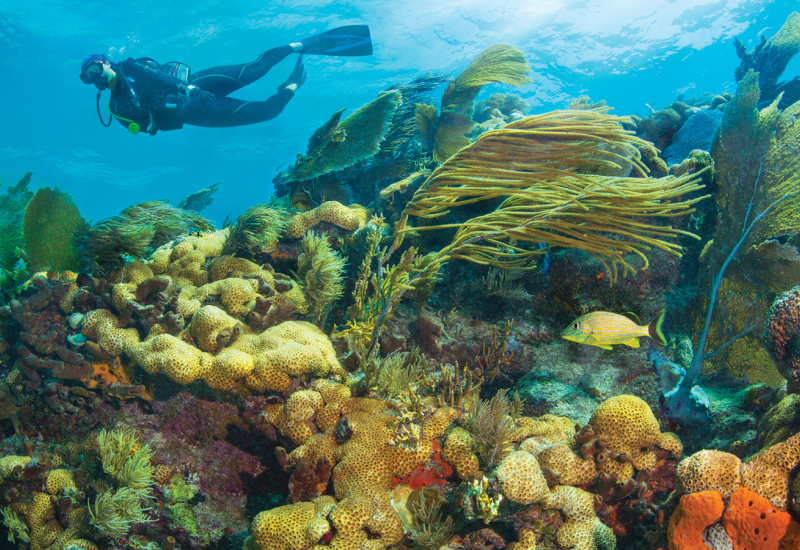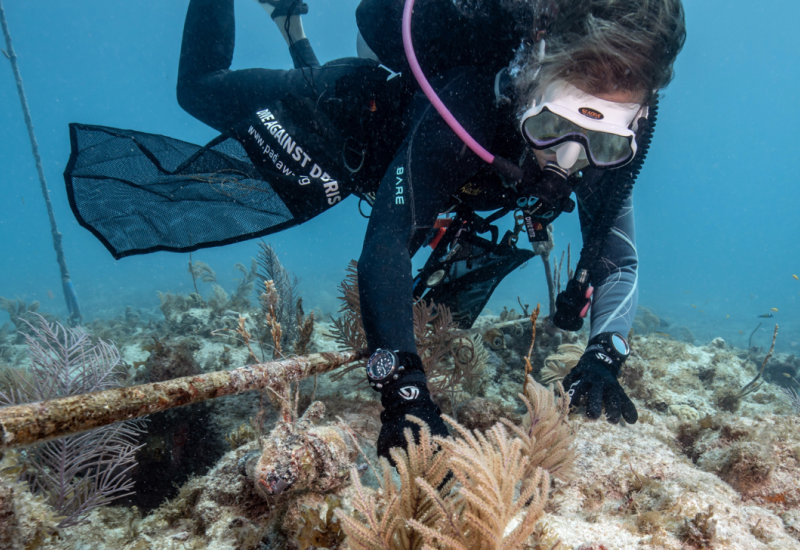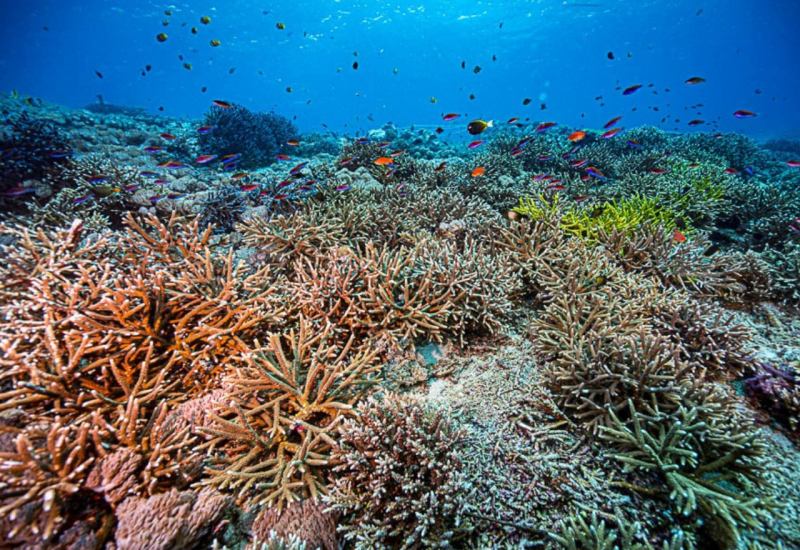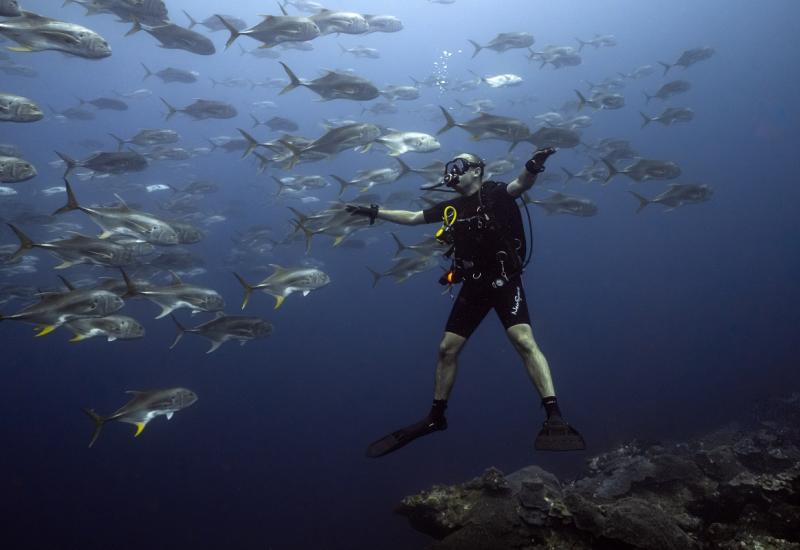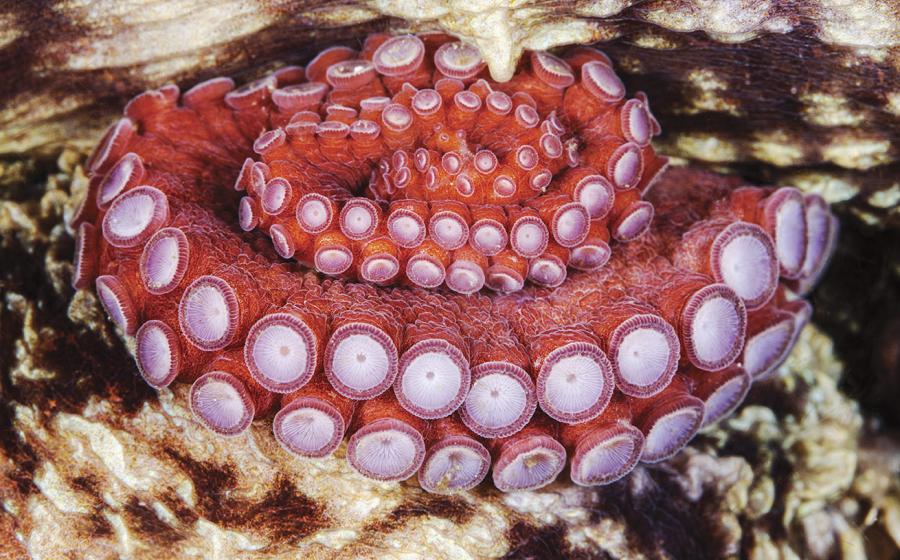Good Viz from Good Buzz
“A healthy environment on the ground equals a healthy environment in the ocean,” says Jennifer Berry, a researcher in the University of Georgia’s bee laboratory. “It’s all tied together, land and sea.”
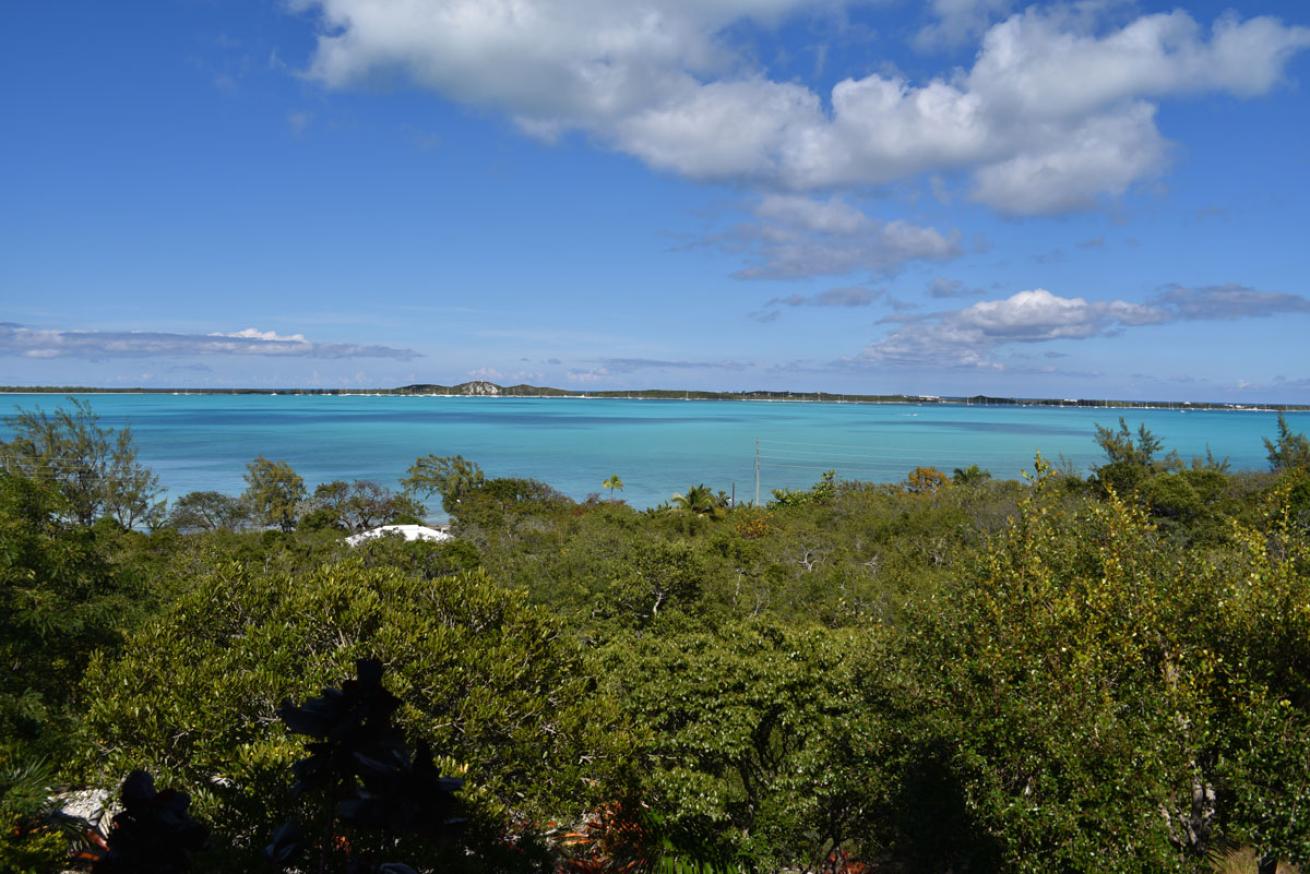
Courtesy The Savannah Bee CompanyExuma, Bahamas.
As pollinators, honeybees play a key role in healthy vegetation. Bee populations have declined around the world due to climate change, agricultural practices, loss of habitat and other factors, but honeybee numbers are climbing on this island, thanks to a project of the Exuma Foundation.
“The Bahamas is a limestone archipelago and so the land is very porous,” says Catherine Booker, a marine biologist with the foundation. “What happens on the land definitely affects the coastal waters around us. Intact native vegetation on shore is good for the bees and good for water quality.”
Booker partnered with the founder of Savannah Bee Company, Ted Dennard, to bring beekeeping to Exuma. Dennard incorporated his company, based in Savannah, Georgia, in 2002. In 2013, he created The Bee Cause not-for-profit education project, which installed glass observation bee hives in classrooms across the US and Canada. He jumped at the chance to expand his passion to the Bahamas.
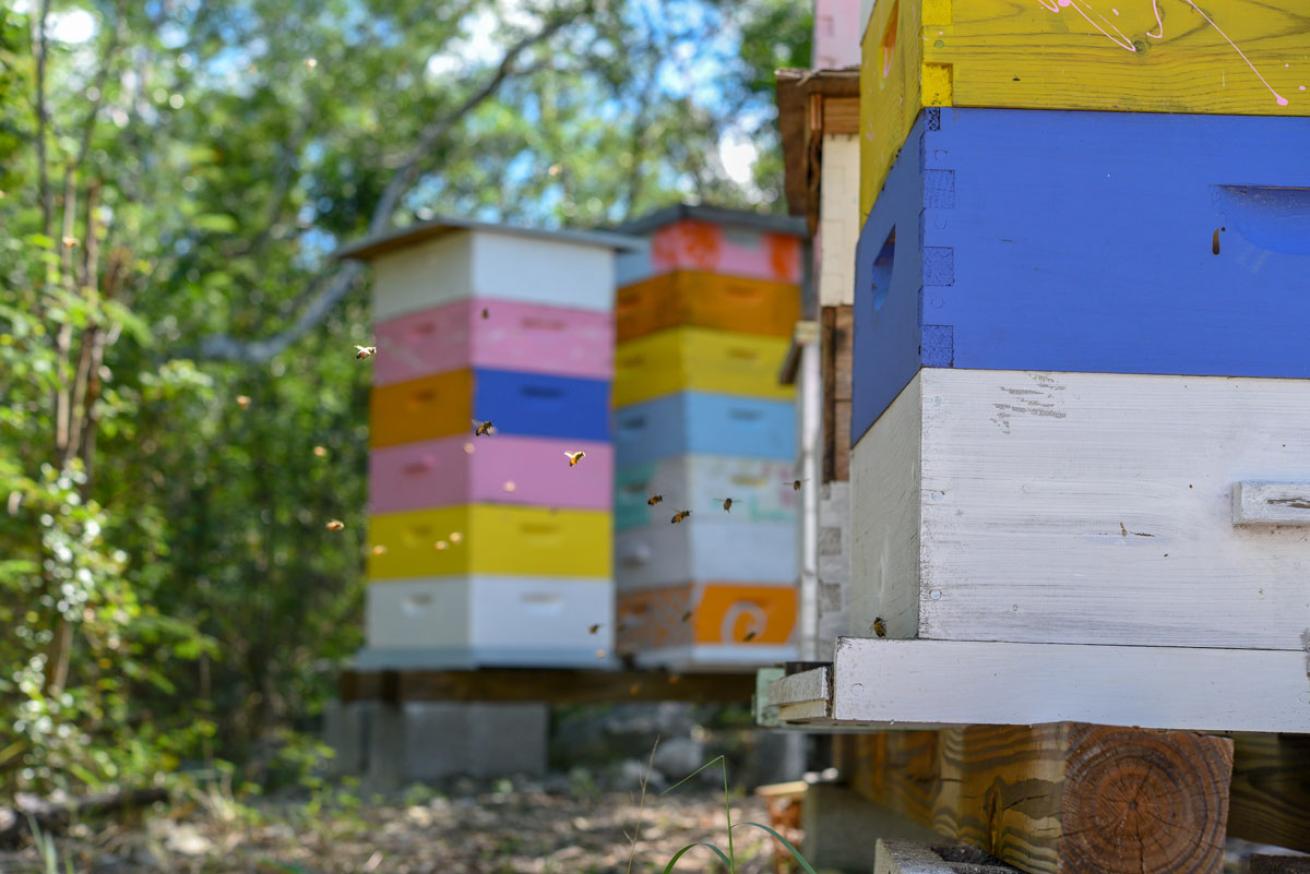
Courtesy The Savannah Bee CompanyBees making their way to and from their hives in Exuma.
Dennard first spent a year searching Exuma for honeybees. “We couldn’t find a single one,” he said. “No old bee boxes or equipment, either. No one knew what the bees or honeycomb or the boxes they live in looked like.” He held workshops to teach beekeeping to the locals and, in 2015, flew 12 boxes of bees to Exuma in a small plane.
Buying bee colonies is easy enough, but finding ones free of the varroa mite, not so much. Introduced from the Asian honeybee, the mite has been devastating colonies of the European bees used for pollination across the U.S. According to Berry, it poses a greater threat to bees even than pesticides and habitat destruction. Dennard carefully sourced bees for Exuma and the project put them through a lengthy cleaning process just in case.
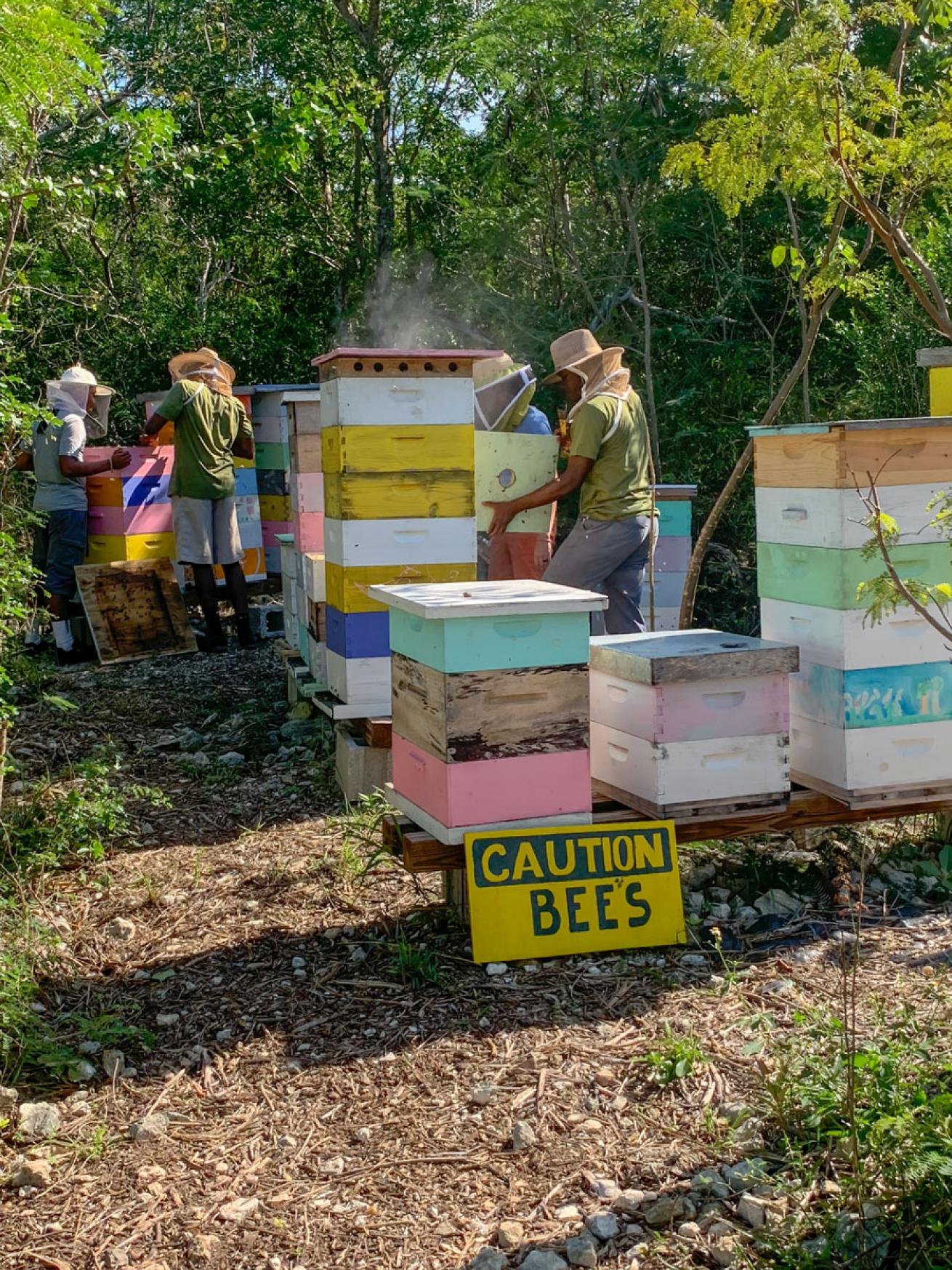
Courtesy The Savannah Bee CompanyBeekeepers maintaining the hives in Exuma.
The bees went to residents already trained as beekeepers. Today, 15 people keep active hives on Exuma and bees live wild there as well. One beekeeper, Ricardo Monroe, turned his initial four hives into 50.
“It’s incredible how it has grown,” Dennard says. “Catherine, the Exuma Foundation and The University of Georgia all deserve a tremendous amount of credit for what became a great project. You hear about the pressure bees are under from habitat loss, pesticides, mites, murder hornets – it’s always something. When I learned beekeeping back in 1979, you could stack boxes and leave them alone, there was nothing to worry about. Right now, Exuma is stacking boxes like the good old days. It’s like going back in time.”
Berry has confirmed that Exuma’s bees remain free of mites. Ultimately, the island could even be a source of mite-free bees across the U.S.
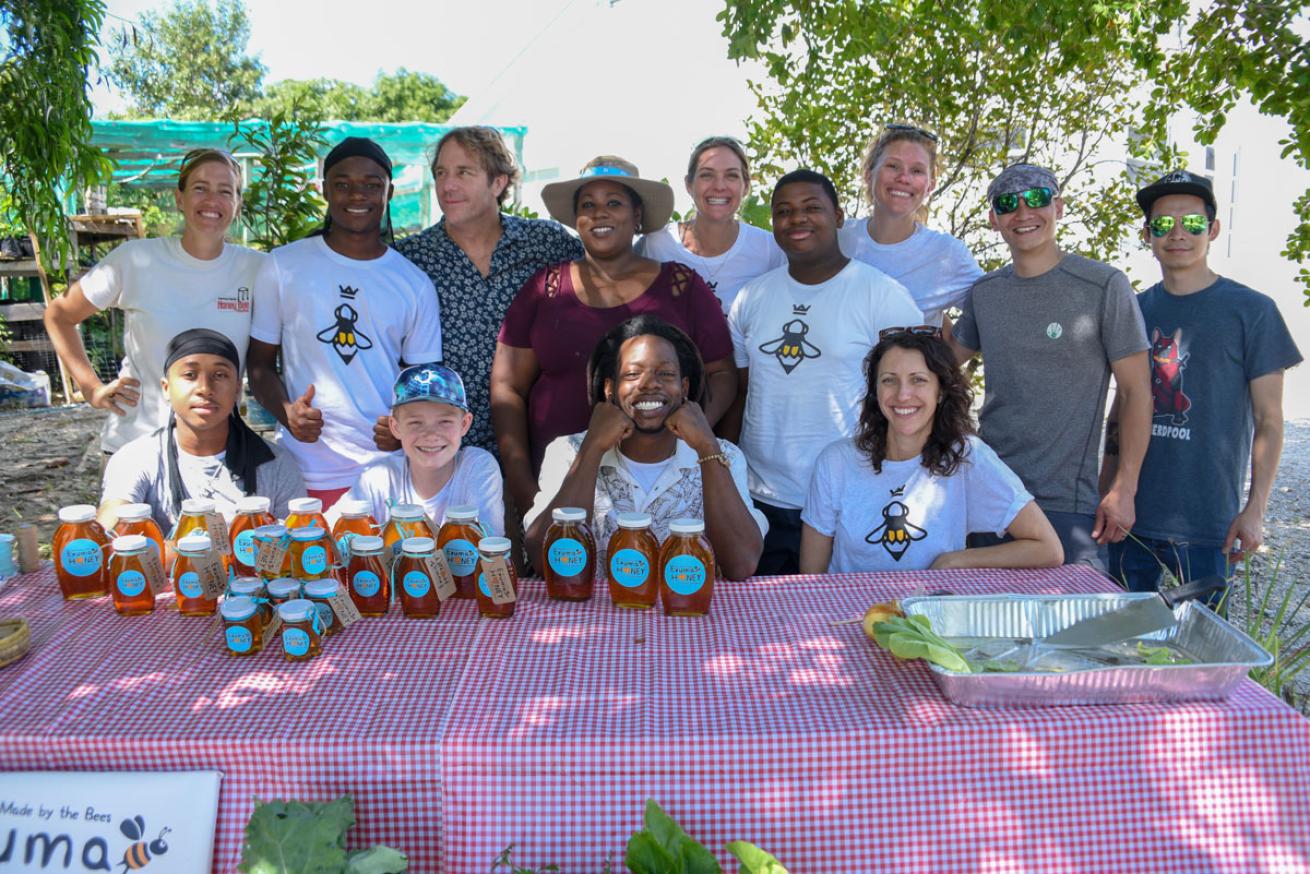
Courtesy The Savannah Bee CompanyThe Exuma Foundation has its own brand of honey and stores on the island sell several other local honey brands.
Workers from one beehive visit more than 500 million flowers in a year, Dennard says, and it takes two million flowers to make one pound of honey. “That is a lot of pollination for a lot of native species,” he says. The island has some native pollinators, but Berry points out that the more pollinators, the better. More pollinators mean more flowering plants, and a strong, healthy plant community helps keep the rest of the ecosystem healthy. Plants help secure the soil, which can protect reefs from run-off and silt.
Booker stresses that beekeeping only exists on Exuma because of locals who became interested early on and stuck with it. “Beekeeping is a real, sustainable livelihood. The Exuma Foundation has its own brand of honey and stores on the island sell several other local honey brands. It's been a real pleasure to see folks pick this up as a way to make some extra money and provide a homegrown, healthy alternative to sugar on the island.”
“The honey production has been unreal,” she adds. “Eating local honey anywhere is a true experience, and here it is part of getting to know the island, connecting to nature. We have a varietal honey made with nectar from the logwood tree, an exceptionally good honey.” Logwood trees factor into the island’s history as well; Bahamanian government buildings get their pink color from a dye made from the tree and its wood was used in boat building.
For everyone involved, though, the project is about more than honey. “An intact land ecosystem supports a healthy vibrant ecosystem under the water,” Booker says. “We’re a relatively small island, the whole island is a coastal zone, and we are looking to preserve both land and sea. The water clarity is tremendous here, in part because of healthy native flora thanks to the bees.”
The Bahamas reopened to visitors on July 1. However, visitors from the U.S. can only reach the Bahamas by charter and private flights. All visitors are required to have a Travel Health Visa (apply at https://travel.gov.bs/international) and qualifying accommodations receive certification from The Bahamas’ Clean & Pristine Certification Agency. Buy honey and beeswax products and visit an observation hive at the Exuma Foundation campus in George Town.

